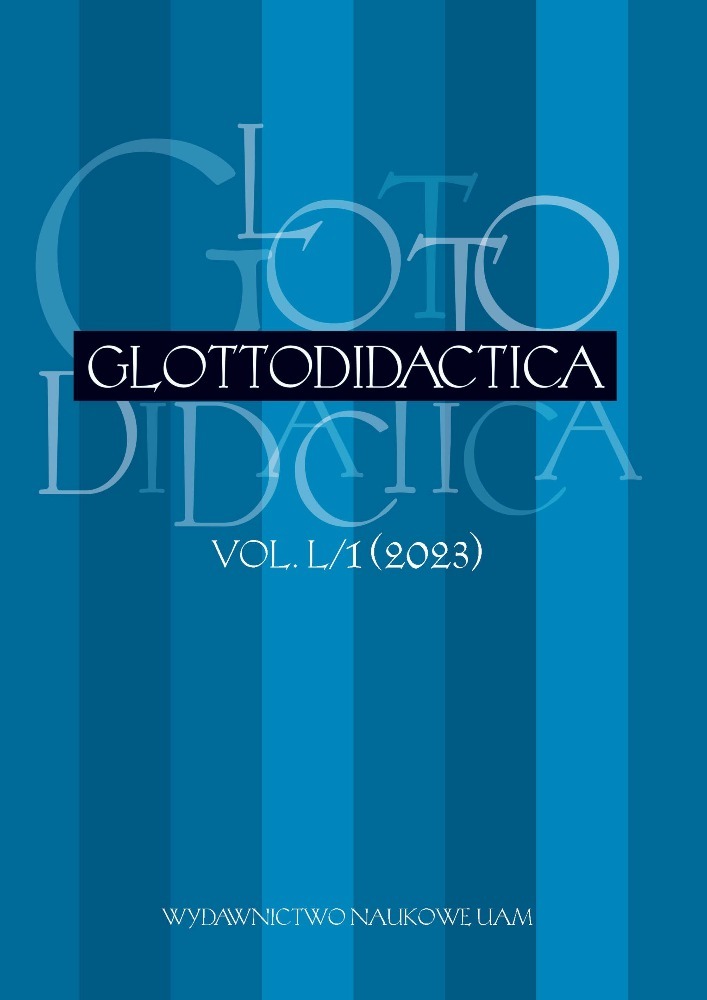Abstract
Institutional and family support for multilingual development. Issue under the auspices of the MaMLiSE project (Majority and Minority Languages in School Environment: Helping teachers, pupils and parents) https://mamlise.amu.edu.pl/
Literaturhinweise
Ballweg, S. (2022). Anticipating expectations. Family Language Policy and its orientation to the school system. International Journal of Multilingualism, 19 (2), 251–268. DOI: https://doi.org/10.1080/14790718.2022.2033756
Ballweg, S. / Havkic, A. (2022). Sprachaneignung und mehrsprachige Praktiken in ihrer sozi- alen Situiertheit. Einige Überlegungen zum Zusammenspiel von Deutsch als Fremd- und Zweitsprache und soziolinguistischer Mehrsprachigkeitsforschung. In: M. Pieklarz-Thien / DOI: https://doi.org/10.14220/9783737013789.25
S. Chudak (eds.), Wissenschaften und ihr Dialog in der Forschung zum Lehren und Lernen fremder Sprachen (pp. 25–52). Göttingen: Vandenhoeck & Ruprecht.
Bezcioglu-Göktolga, I. / Yağmur, K. (2018a). Home language policy of second-generation Turkish families in the Netherlands. Journal of Multilingual and Multicultural Development, 39 (1), 44–59. DOI: https://doi.org/10.1080/01434632.2017.1310216
Bezcioglu-Göktolga, I. / Yağmur, K. (2018b). The impact of Dutch teachers on family language policy of Turkish immigrant parents. Language, Culture and Curriculum, 31, 220–234. DOI: https://doi.org/10.1080/07908318.2018.1504392
Carvalho, M. (2001). Rethinking family-school relations. A critique of parental involvement in schooling. New York / London, England: Routledge. DOI: https://doi.org/10.4324/9781410600332
Daase, A. (2017). Heteroglossische Subjektivitäten im Übergang – Sprachlichkeit aus der Subjekt- perspektive. In: A. Daase / U. Ohm / M. Mertens (eds.), Interkulturelle und sprachliche Bildung im mehrsprachigen Übergang Schule-Beruf (pp. 109–134). Münster: Waxmann.
Gogolin, I. / Lange, I. (2010). Durchgängige Sprachbildung. Eine Handreichung. Münster: Waxmann.
Green, D. (1998). Mental control of the bilingual lexico-semantic system. Bilingualism: Language and Cognition, 1, 67–81. DOI: https://doi.org/10.1017/S1366728998000133
Grosjean, F. (1989). Neurolinguists, beware! The bilingual is not two monolinguals in one person. Brain and Language, 26, 3–15. DOI: https://doi.org/10.1016/0093-934X(89)90048-5
Grosjean, F. (2001). The bilingual’s language modes. In: J.L. Nicol (ed.), One mind, two languages: Bilingual language processing (pp. 1–22). Hoboken, NJ: Wiley-Blackwell.
Kirsch, C. / Aleksić, G. / Mortini, S. / Andersen, K. (2020). Developing multilingual practices in early childhood education through professional development in Luxembourg. International Multilingual Research Journal, 14 (4), 319–337. DOI: https://doi.org/10.1080/19313152.2020.1730023
Mary, L. / Young, A. (2020). Teachers’ beliefs and attitudes towards home languages maintenance and their effects. In: A. Schalley / S. Eisenchlas (eds.), Handbook of home language maintenance and development. Social and affective factors (pp. 444–463). Berlin et al.: De Gruyter Mouton. DOI: https://doi.org/10.1515/9781501510175-022
Masterson, M. (2017). Perception of the self and other and the role of language: An exploratory qualitative study. Frankfurt (a. M.): Peter Lang. DOI: https://doi.org/10.3726/b11441
Rokita-Jaśkow, J. / Wolanin, A. / Król-Gierat, W. / Nosidlak, K. (2022). Bridging the ‘dual lives’: School socialization of young bi/multilinguals in the eyes of EFL teachers. International Journal of Bilingual Education and Bilingualism, 26 (4), 395–410. . DOI: https://doi.org/10.1080/13670050.2022.2114788
Szczepaniak-Kozak, A. / Farrell, A. / Ballweg, S. / Daase, A. / Wąsikiewicz-Firlej, E. / Masterson, M. (2023). Promoting multilingual practices in school and home environments. Perspectives from Germany, Greece, Ireland and Poland. Göttingen: Vandenhoeck & Ruprecht. DOI: https://doi.org/10.14220/9783737015639
Lizenz
Copyright (c) 2023 Emilia Wąsikiewicz-Firlej, Sandra Ballweg, Mary Masterson, Andrea Daase, Angela Farrell

Dieses Werk steht unter der Lizenz Creative Commons Namensnennung - Keine Bearbeitungen 4.0 International.
Authors
Authors of texts accepted for publication in Glottodidactica are required to complete, sign and return to the editor's office the Agreement for granting a royalty-free license to works with a commitment to grant a CC sub-license.
Under the agreement, the authors of texts published in Glottodidactica grant the Adam Mickiewicz University in Poznań a non-exclusive, royalty-free license and authorize the use of Attribution-NoDerivatives 4.0 International (CC BY-ND 4.0) Creative Commons sub-license.
The authors retain the right to continue the free disposal of the work.
Users
Interested Internet users are entitled to use works published in Glottodidactica since 2016, under the following conditions:
- attribution - obligation to provide, together with the distributed work, information about the authorship, title, source (link to the original work, DOI) and the license itself.
- no derivatives - the work must be preserved in its original form, without the author's consent it is not possible to distribute the modified work, such as translations, publications, etc.
Copyrights are reserved for all texts published before 2016.
Miscellaneous
Adam Mickiewicz University in Poznań retains the right to magazines as a whole (layout, graphic form, title, cover design, logo etc.).





